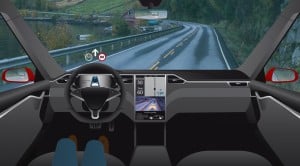Driverless Cars – Is Perfection the Enemy of Saving More Lives?
 Silverman, McDonald & Friedman provides comprehensive counsel to car crash injury victims throughout Delaware. To schedule a free initial consultation with an attorney in our Seaford, Newark or Wilmington office, please contact us today.
Silverman, McDonald & Friedman provides comprehensive counsel to car crash injury victims throughout Delaware. To schedule a free initial consultation with an attorney in our Seaford, Newark or Wilmington office, please contact us today.
One of the major factors influencing the speed with which commercially available autonomous vehicles can be made available to consumers is the ability of designers and manufacturers to demonstrate their reliability in terms of safety and the protection of human life.
RAND Corporation has addressed the issues surrounding the introduction of driverless cars in a new report that shows that even the implementation of self-driving vehicles possessing average technological capabilities would achieve great progress in lowering the number of yearly fatalities on the road. Only a 10 percent increase in the technological capability/reliability of these cars over the average U.S. driver, the report estimates, could result in the reduction of thousands of deaths on the roadways each year.
Waiting for AV perfection may cost lives
According to the NHTSA, the number of roadway fatalities in the U.S. reached 37,461 in 2016. Waiting until autonomous vehicles are nearly perfected – in other words operating with a reliability of 75 to 95 percent greater than that of human drivers – the RAND study estimates, would result in the unnecessary loss of potentially hundreds of thousands of lives.
RAND researcher Nidhi Kalra, co-author of the report with fellow researcher David Groves, explained how, when it comes to making the transition to self-driving cars, perfection can become the enemy of good:
Our work suggests that it is sensible to allow autonomous vehicles on America’s roads when they are judged to be just moderately safer than having a person behind the wheel. If we wait until these vehicles are nearly perfect, our research suggests the cost will be many thousands of needless vehicle crash deaths caused by human mistakes.
The RAND researchers developed an innovative model to estimate the number of road deaths over time under hundreds of possible future scenarios, taking into account various possible safety levels present with these vehicles at their introduction.
The case for introducing driverless cars sooner rather than later
The rational argument for introducing autonomous vehicles earlier in their development rather than later is this:
If human drivers are responsible for causing 40,000 deaths on the roadways each year, due to errors in judgment, distraction, alcohol intoxication, etc., and self-driving vehicles cause 39,999 deaths fewer each year, then why not begin the transition?
The counterargument mostly concerns the issue of public relations and loss of credibility in the technology when the first person dies in an autonomous vehicle accident – this despite thousands of other lives saved at the same time. This kind of good news is not often heralded far and wide, but the “bad” news spreads easily and quickly. A recent example is the now widely publicized Tesla semi-autonomous vehicle crash that resulted in the driver’s death.
The researchers at RAND presented three prominent scenarios in their report. One has AVs on the road with driving capabilities 10 percent safer than the average human driver. The next scenario has these vehicles hitting the market when they are 75 percent more reliable in terms of safety. The third scenario has them operating at 90 percent greater safety reliability than their human driver counterparts. All three scenarios were found to save lives, but the 10 percent safer scenario would save many more lives, and sooner, based on the study’s results.
The public’s concerns must be addressed
The public and the media do not always view the successes and failure of driverless vehicles in terms of statistical data, the way engineers and manufacturers do. According to 2016 U.S. Department of Transportation statistics, human error is the cause of 94 percent of fatal vehicle crashes. Despite this fact, the public remains wary of autonomous driving vehicles. A Pew Research Center poll revealed that 56 percent of Americans have no appetite to take a single ride in a self-driving vehicle. A survey conducted by AAA discovered that 54 percent of drivers feel less safe about the thought of sharing the road with an autonomous vehicle, while 10 percent feel safer.
Human beings are naturally risk-averse. Although we tolerate human error, including on our roads, as Gil Pratt of Toyota’s research Institute explains, “we expect machines to perform much better.”
Accident liability issues are also a concern. Assistant law professor at the University of South Carolina, Bryant Walker Smith, believes that as self-driving vehicles become more advanced toward 100% automation, liability for accidents will shift from the driver to the vehicle manufacturer.
In the meantime, the federal government continues to take steps forward in establishing a legal framework for the implementation of autonomous vehicles. A combination of effective policies created in the near-term and public education as to the actual risks and benefits of introducing driverless vehicles will determine how quickly we see their presence on the roads as a growing reality.
The car crash attorneys at Silverman, McDonald & Friedman are here to offer sound legal advice and dependable representation when you have been injured. To schedule your initial free consultation, please call 302-888-2900 or fill out our contact form. We proudly serve clients in Newark, Seaford and Wilmington and throughout Delaware.

Attorney Jeffrey S. Friedman joined Silverman, McDonald & Friedman in 2001. He graduated from Widener University School of Law, and is admitted to practice law in Delaware and Pennsylvania, and in several Federal Circuit courts. He areas of concentration include auto accident and workers’ compensation cases. Read more about Attorney Friedman here.

